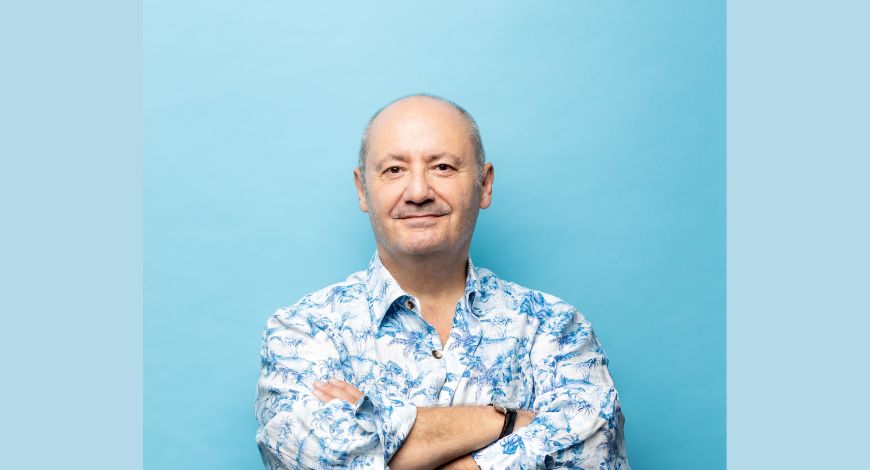Asia’s travel scene is on the verge of a major shift, driven by two powerful forces: the region’s full post-pandemic rebound and the rapid acceleration of AI. Schubert Lou, CEO of Trip.com, recently spoke to WiT about how he believes this combination will create a wave of innovation, allowing Asia to leapfrog ahead in tech advancements.
“We have a relatively younger population in Asia that is tech-savvy and more willing to adopt new tech and offerings than in other markets,” he said during a visit to Singapore. Companies like DJI in drones and BYD in electric vehicles are already proving how Asia is solving local challenges with cutting-edge solutions. Lou predicts the same transformation in travel, as AI reshapes supply and demand, with regions like India and the Middle East playing a key role in pushing innovation forward.
AI is already making an impact on travel services, with Trip.com integrating AI-powered tools to streamline operations. “We are infusing AI into our products and service operations. Co-piloting is happening in many of our operations,” Lou explained, highlighting how AI can speed up decisions on refunds and customer queries. However, he sees a hybrid future where humans and AI collaborate rather than replace each other. “It also depends on the customer – older people might need humans. Gen Z might be okay dealing with an AI agent.” While AI is evolving rapidly, Lou doesn’t see it as a linear race. “AI is a series of sprints – everyone is innovating in different ways, and the landscape is constantly shifting.”
Caroline Bergstrom, Head of Ancillary Products at SAS, spoke about how the company is doubling down on AI and self-service to create seamless travel experiences. She envisions a “one-stop-shop” where passengers can book everything in one place, from flights to hotels and experiences. “We probably know exactly what the customer wants for their trip,” Bergstrom said, highlighting how AI can suggest relevant ancillaries like breakfast for early flights. To support this shift, SAS rebuilt its app from scratch, pausing new features for a year but emerging with an award-winning platform.
Beyond personalisation, SAS is pushing direct bookings and loyalty benefits to strengthen customer relationships. Over 50% of its bookings now come directly through its channels, with perks like free WiFi for EuroBonus members. “If you want to connect to the world while flying, you need to be a EuroBonus member, and then it’s free,” Bergstrom noted. The airline is also experimenting with gamification, introducing real-time bidding for upgrades, where passengers can see their ranking and adjust their bids accordingly.
By the way, are you all caught up on season three of The White Lotus? Thailand is riding a wave of global attention thanks to HBO’s hit show, with hotels like the Four Seasons Koh Samui seeing a 40% surge in bookings. But can Thailand turn this short-term boost into sustainable tourism growth? Andrew Smith, SVP of Supply at Agoda, believes so, pointing out that the show “showcases Thailand’s cultural and visual identity and promotes its soft power through its constant focus on stunning locations.” Agoda’s data shows a 65% spike in U.S. searches for Thailand, but intra-Asian markets still dominate. Smith advises hoteliers to balance offerings for both groups, noting that “Korean travellers value accommodations with breakfast, pools, and spas, while Japanese visitors are drawn to local prices and authentic cuisines.”
But as Siew Hoon, Founder, WiT writes in her latest column, not everyone is enamoured by the White Lotus craze – even though it’s nearly impossible to escape. “I tried to escape it — literally,” she said. “I flew to Cape Town. Surely, I thought, the White Lotus spell couldn’t reach the tip of Africa. And then I passed a building on Kloof Street. Big sign. Familiar font. “The White Lotus.”
Turns out it’s a wellness centre. Though I did wonder — do you go there to be killed or healed?”
“Clearly, I’m the outlier here — immune (or resistant) to the White Lotus effect,” says Siew Hoon. “But the data tells a different story. The original resort in Maui reported a 425% spike in website visits after Season 1. The second season’s hotel in Sicily? Booked out for six months post-filming. Whether it’s the scenery, the drama, or the fantasy of being someone else somewhere else — the lotus continues to bloom.”








